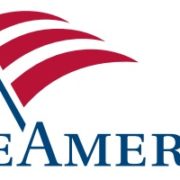Understanding Net Unrealized Appreciation (NUA)

Money Matters – Skloff Financial Group Question of the Month – June 1, 2022
Understanding Net Unrealized Appreciation (NUA)
By Aaron Skloff, AIF, CFA, MBA
Q: We read the article ‘Is There a Tax Benefit to Owning My Company’s Stock in My 401(k)?’. Is there a way to gain large tax benefits with Net Unrealized Appreciation (NUA)?
A: The Problem — Paying Unnecessary Taxes on Retirement Assets
Distributions from pre-tax retirement plans like 401(k)s are normally taxed as income in the year of the distribution. Withdrawals from a 401(k) or a Rollover IRA are taxed as income, at (up to) the 37% federal income tax rate. Most states have a state state income tax rate. For example, California’s top income tax rate is 13.3%.
The Solution — Net Unrealized Appreciation (NUA) Can Offer Large Tax Benefits
With a properly executed Net Unrealized Appreciation (NUA) strategy, you can slash the tax rate on the gains of your company stock from as high as 37% to 0%, 15% or 20% (based on your income). Let’s look at four examples, based on a $1 million 401(k) balance that is split: $250,000 in your company’s stock and $750,000 in other investments.
Are You Interested in Learning More?
Withdraw Entire 401(k) Balance. If you withdraw your entire 401(k) balance, you will be subject to federal income tax on the entire amount withdrawn. The example below assumes a 32% federal income tax rate. See 401(k) Example in the chart below.
Rollover Entire 401(k) Balance to a Rollover IRA. If you rollover your entire 401(k) balance into a Rollover IRA, you will be subject to federal income tax on the entire amount withdrawn from your Rollover IRA. The example below assumes a 32% federal income tax rate. See Rollover IRA Example in the chart below.
Transfer All Company Stock to a Brokerage Account and the Balance to a Rollover IRA. If you transfer $250,000 of your company stock with a $100,000 cost basis into your brokerage account and rollover $750,000 in other investments into a Rollover IRA, you will be subject to income taxes on the cost basis of the $250,000 of company stock and on the entire amount withdrawn from your Rollover IRA. The gains on the sale of company stock in your brokerage account is subject to capital gains taxes, based on your income. The example below assumes a 32% federal income tax rate and 15% capital gains rate. See NUA Example 1 in the chart below.
Transfer Low Cost Basis Company Stock to a Brokerage Account and the Balance to a Rollover IRA. If you transfer $180,000 of your company stock with a $20,000 cost basis into your brokerage account and rollover $70,000 of your company stock with a $80,000 costs basis and $750,000 in other investments into a Rollover IRA, you will be subject to income taxes on the $20,000 of cost basis transferred to your brokerage account and on withdrawals from your Rollover IRA. You are subject to capital gains taxes on the gains on sales from your brokerage account. The example below assumes a 32% federal income tax rate and 15% capital gains rate. See NUA Example 2 in the chart below.
Click to Enlarge
Liquidating the 401(k) based on the ‘401(k) Example’ creates $320,000 of taxes, leaving $680,000 in net proceeds. Liquidating the Rollover IRA based on the ‘Rollover IRA Example’ creates $320,000 of taxes, leaving $680,000 in net proceeds. Liquidating the $750,000 Rollover IRA and $250,000 brokerage account based on the ‘NUA Example 1’ creates $294,500 of taxes, leaving $705,500 in net proceeds. Liquidating the $820,000 Rollover IRA and $180,000 brokerage account based on the ‘NUA Example 2’ creates $292,800 of taxes, saving $27,000 in taxes, leaving $707,200 in net proceeds. The ‘401(k) Example’ or ‘Rollover IRA Example’ create $27,000 or 9.3% more taxes than the ‘NUA Example 2’ strategy.
Action Step — Evaluate Your Taxes and Use the Best NUA Strategy
As seen in the four example above, the amount of taxes you pay can vary based on executing versus not executing a NUA strategy. Furthermore, different NUA strategies can create different tax obligations and net proceeds. The best NUA strategy can slash your taxes. Work closely with your Registered Investment Adviser (RIA) to evaluate your company stock, current and projected future income tax rates and capital gains rates to determine if an NUA strategy is right for you.
Aaron Skloff, Accredited Investment Fiduciary (AIF), Chartered Financial Analyst (CFA), Master of Business Administration (MBA) is CEO of Skloff Financial Group, a Registered Investment Advisory firm specializing in financial planning, investment management and benefits for small to middle sized companies. He can be contacted at www.skloff.com or 908-464-3060.














